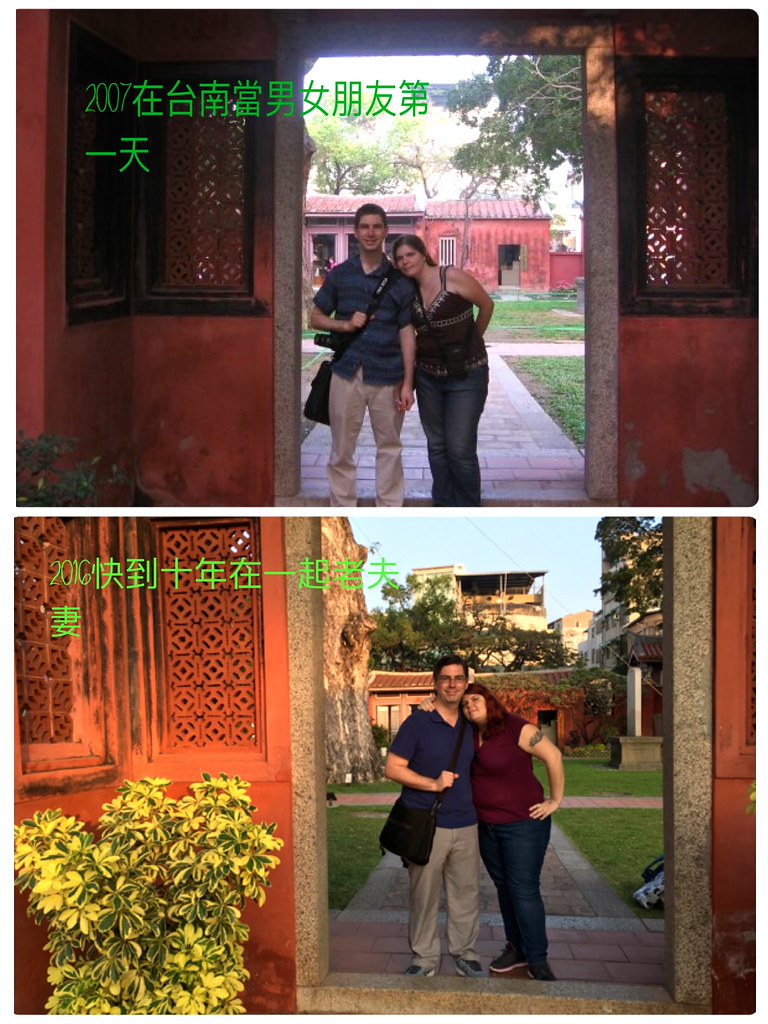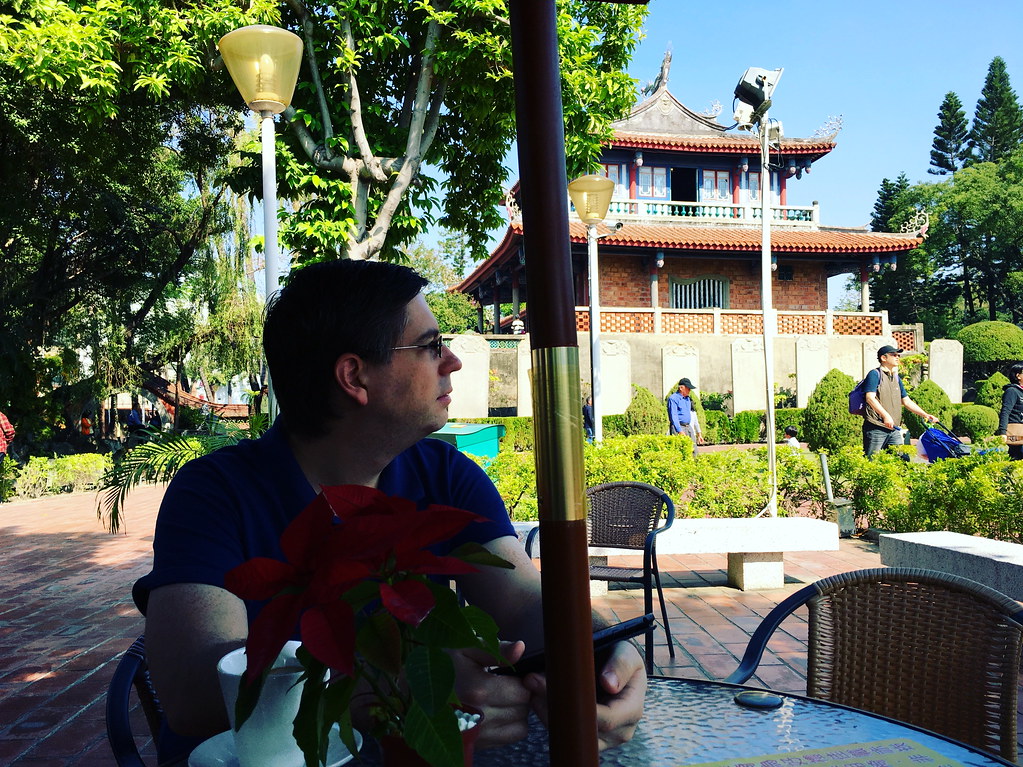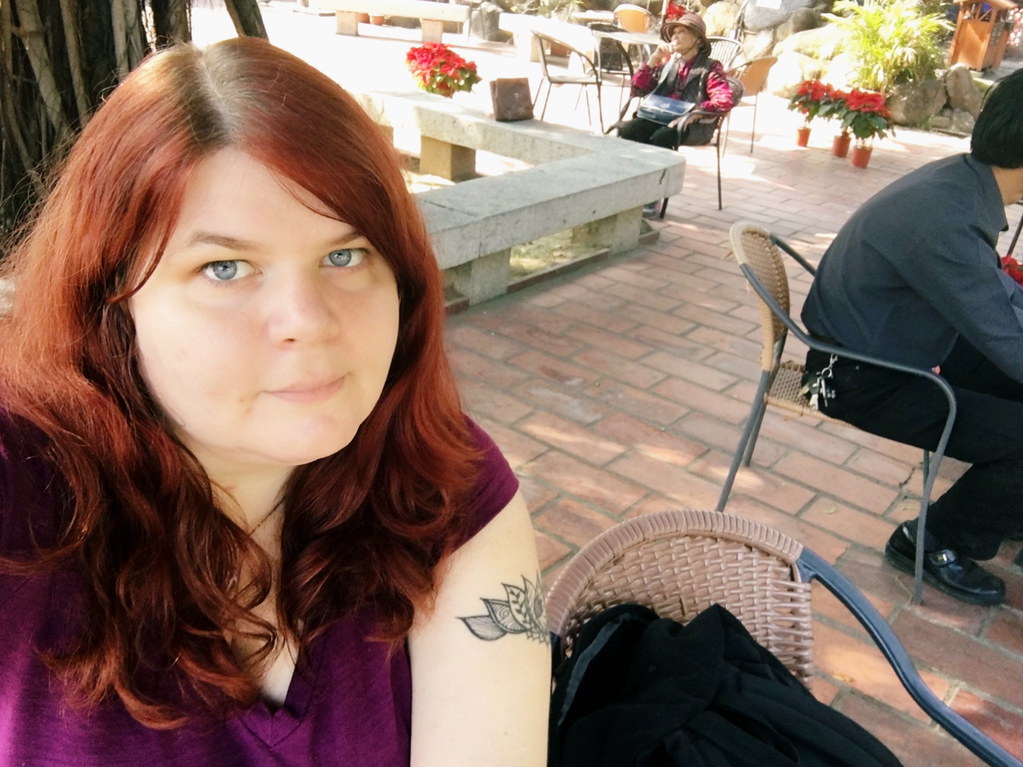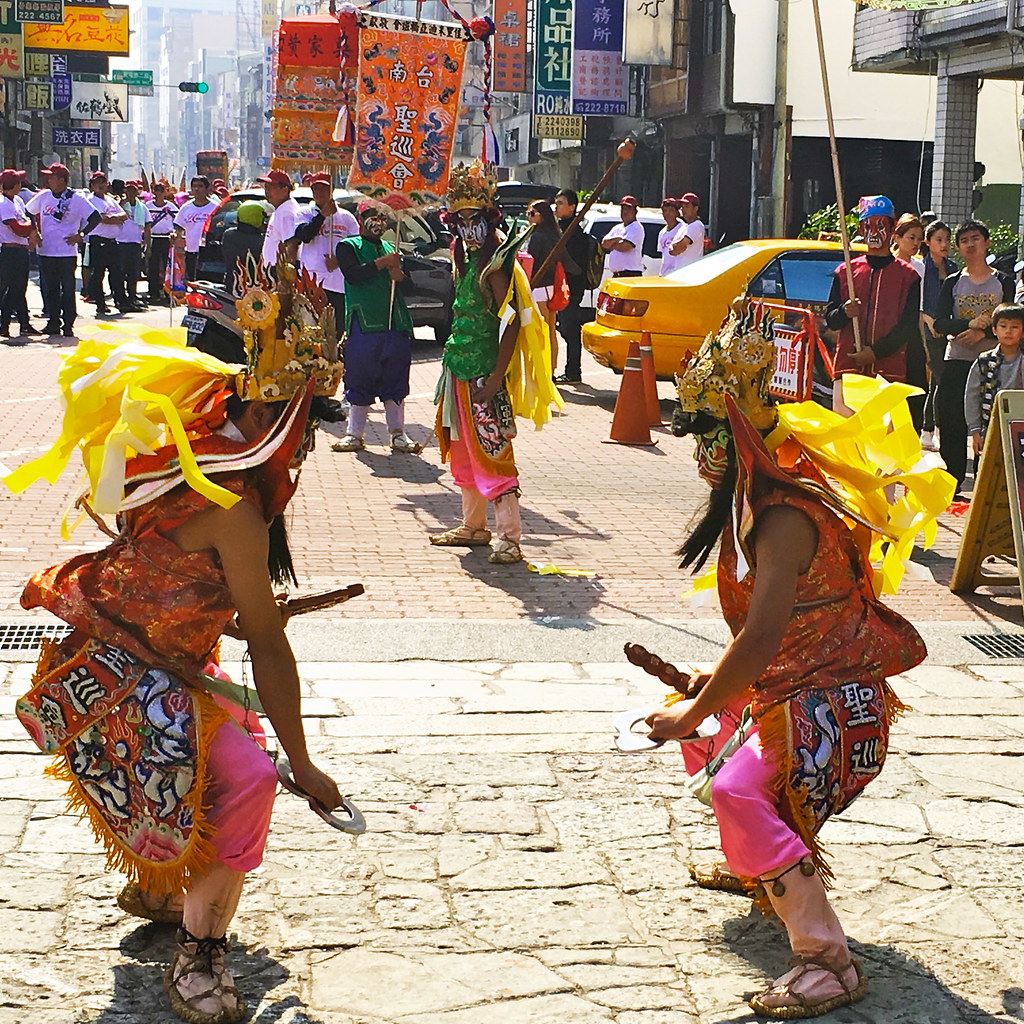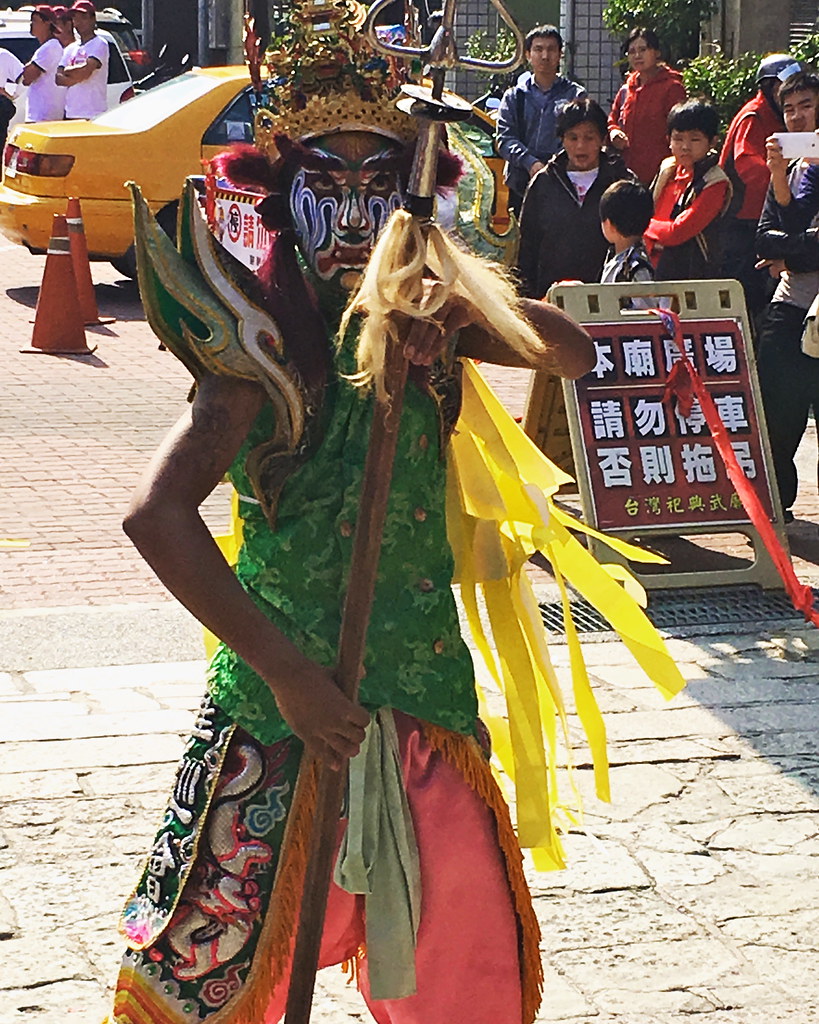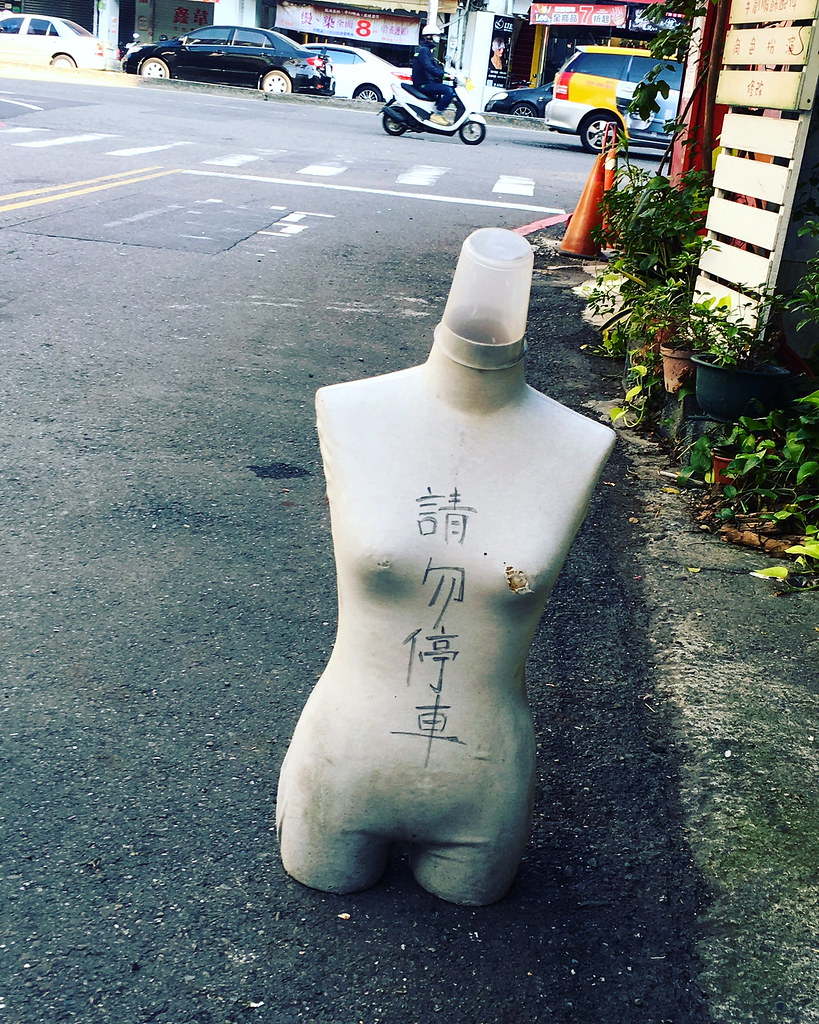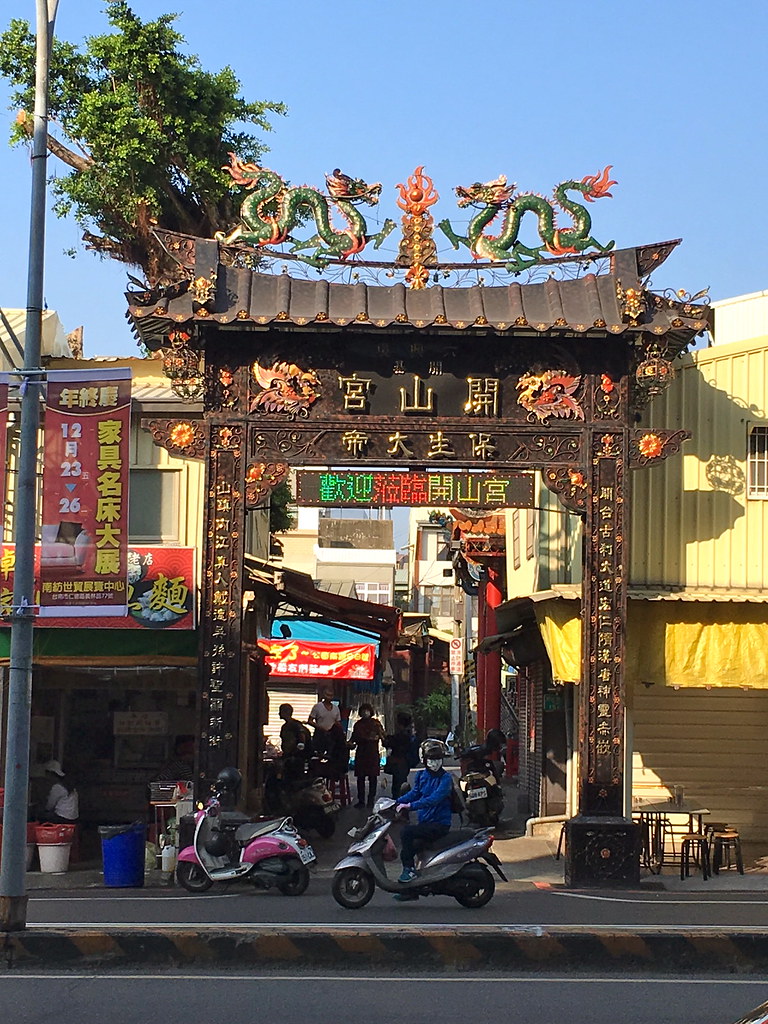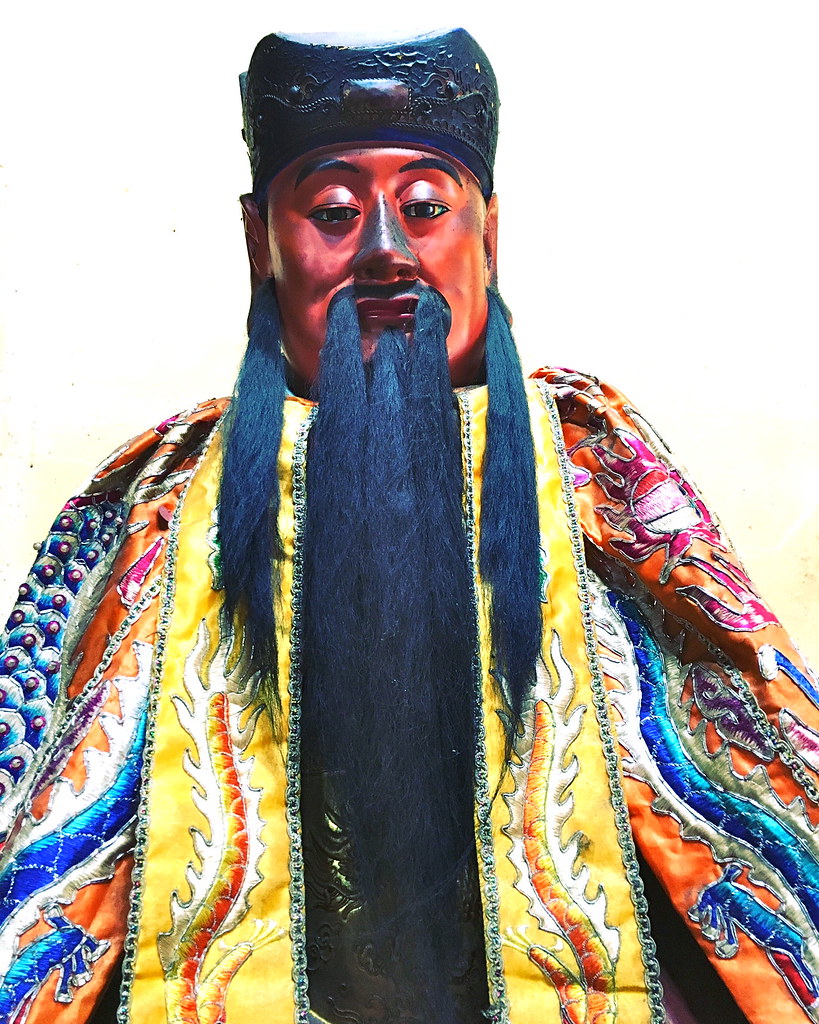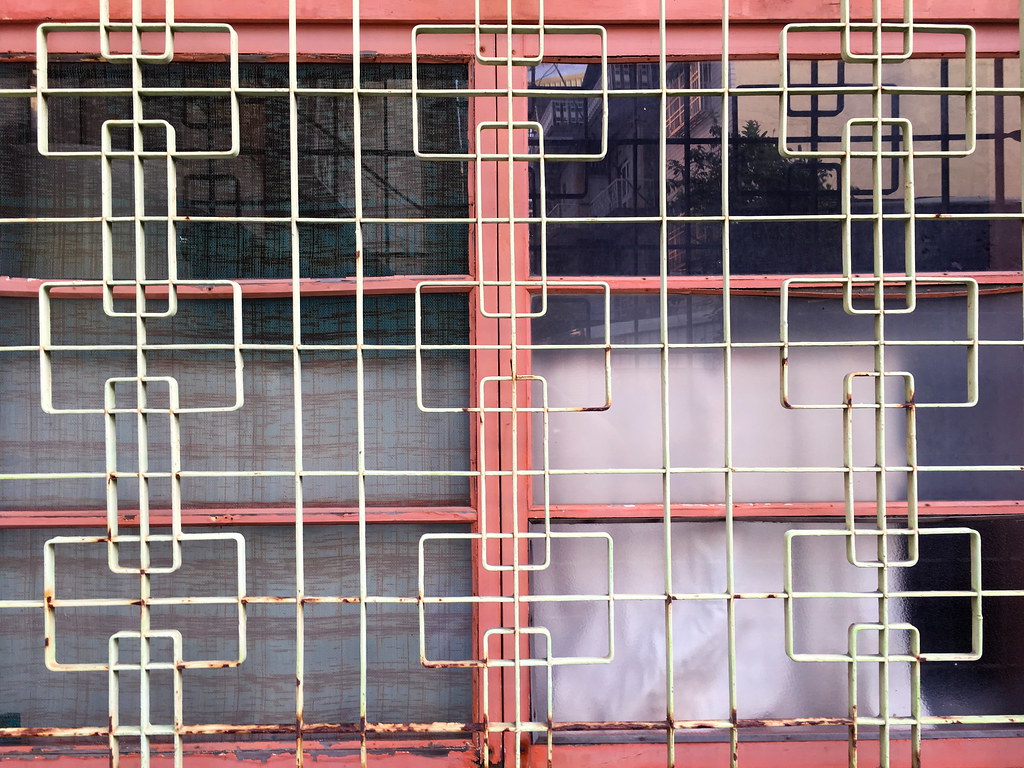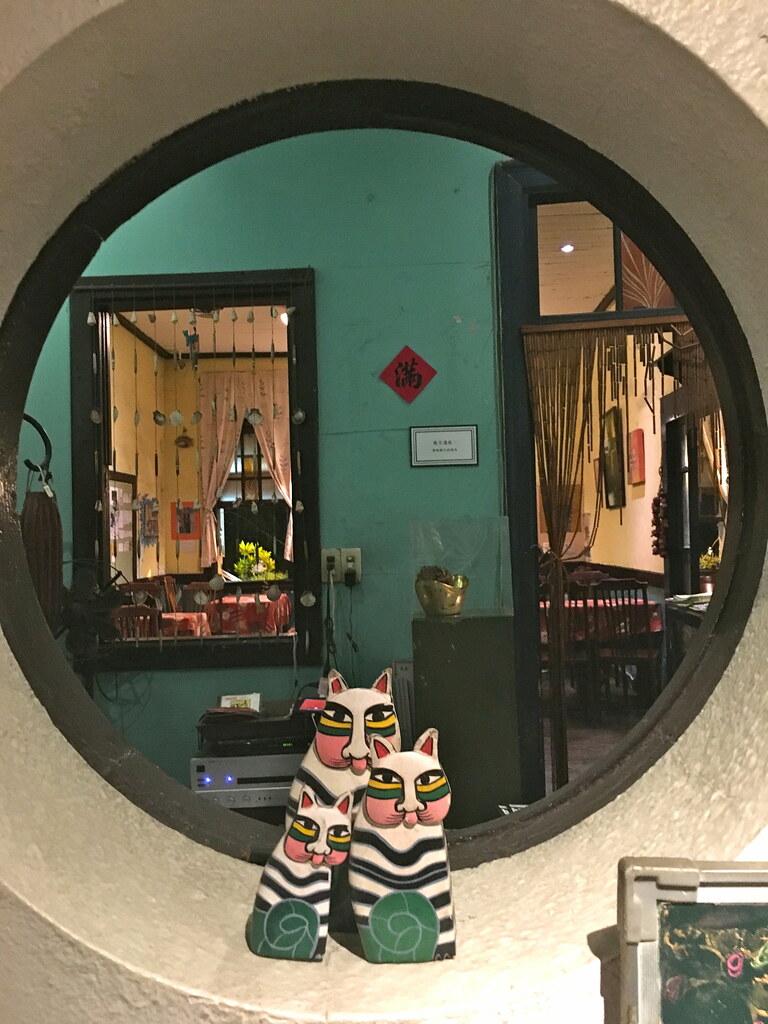I don't blog much here about English teaching, because to be honest, it's my job. I happen to love it, and I happen to be a professional, and I want to talk about it, but...it's my job. I may start a specifically ELT-related blog someday, but otherwise I generally tend to keep my hobbies (like snarking on Taiwanese politics, activism - to the degree I am able - writing and travel/exploration) separate from my profession. It's funny, though, because I'm actually qualified to comment on ELT matters, whereas despite my related degree (International Affairs), I'm basically a hobbyist with a snarky streak when it comes to politics.
However, something about this really ought to be said. First, a primer in what 'native speakerism' is.
None of this is new - there is a whole organization dedicated to fighting native speakerism. But, to get into why it's difficult to fight in Taiwan, I feel the groundwork needs to be laid.
Native speakerism is a global issue - preconceived notions about what makes a 'teacher' due to a lack of general training in ELT issues (which is fair - not everyone is going to have a basic knowledge of education theory) causes learners to believe that native speaker teachers are superior and schools advertising the usually (but not always) white, Western faces of the teachers with correspondingly high tuition preys on notions of 'prestige' in teaching. Learners then request native speaker teachers, leading schools to then discriminate against non-native speaker teachers in hiring, and blame it on "the market" - a market which they helped create. It doesn't help that a horrifying lack of professional standards makes it possible to get a teaching job with no qualifications or experience to speak of other than being a native speaker, and that the owners of language schools are often local businesspeople, not educators, and do not know themselves what to look for in a quality teacher - they too boil it down to "native speaker, looks the part, cheaper than a trained teacher, you're hired."
One can add to that a big fat dollop of outdated assumptions of what it means to be a "non-native speaker". People who don't know better will insist that "non-native speakers can't possibly know all of the idiomatic language, rare collocations and modern usages of English, they'll teach a more textbook English", but that assumes quite a bit about a native speaker. An Egyptian woman who spent the first ten years of her life in Cairo, but then moved to England and had lived there ever since, for example, would speak at a level so close to native that you would not know she wasn't a native speaker, and would have more knowledge of British idiomatic language than I do. How is she less of a 'native speaker' than I am? A Taiwanese student who went through an entire school curriculum at TES or TAS, who might speak flawlessly - you might mistake her for an Asian woman from the West - is she a native speaker? My own grandfather grew up in Greece and moved to the US in elementary school. His native languages were Western Armenian - there are a genocide and two escapes in that story - and Greek. To hear him talk now you would never think of him as anything other than a native speaker of English. Is he? Why do you assume all native speakers speak an imperfect, textbook-y or even 'foreign accented' (again, whatever that means) English?
And that's not even getting into issues of cultural or linguistic imperialism and
the notion that only "native speaker English" (whatever that means) is "good enough", or that there is something wrong with local varieties of English!
What really goes into teaching well is, of course, a high level or native-like level of English: something many non-native speakers attain, as well as sound training (whether it confers a credential or not - the piece of paper is not the point, though it's hard to gauge the quality of non-credentialed training) and increasing levels of responsibility through experience. Some level of basic talent or affinity for teaching helps. Research agrees: if the level of English is sufficient and the teaching is pedagogically sound, the first language of the teacher makes no difference.
I find this a very convincing set of arguments for doing away with discrimination based on first language in language teaching, and yet the problem persists in Taiwan. Why?
The law is outdated
There are conflicting accounts of what the laws actually say. Most non-native speaker teachers in Taiwan are Taiwanese themselves, students on a student visa that allows work, or other foreign residents married to locals. A few have Master's degrees and therefore can be hired for any job. It is unclear whether, legally, visas for non-native speaker teachers who come to Taiwan simply to teach can be procured by schools however. I have been told "no", I have been sent unclear links with confusing language, I have been told such visas have been successfully issued, although every example seems to be of a white European. I have been told English must be the 'official language' of the country of origin, but the US has no official language, and plenty of countries people don't think of as English-speaking, such as Nigeria and India, do have English as an 'official language'.
However, I have also heard firsthand accounts of non-native speaker, non-Taiwanese foreigners trying and failing to get a visa to teach English because they held the "wrong" passport (not from Canada, the US, Ireland, the UK, South Africa, Australia or New Zealand). So, let's just say that the law is unclear but if you are not a native speaker, and do not have another pathway to a job that doesn't require a school-sponsored visa, and lack a Master's degree, that it is likely to be difficult for you to procure a visa to work in Taiwan.
This is in direct contradiction to
research on effective teaching, and yet it remains a problem. When it is difficult to get a school to even offer a job to someone they know they may not be able to get a visa for, it makes sense that schools would go for candidates for whom visas would be promptly issued.
So what can we do? Honestly, I have no idea. You can lobby the government - good luck with that. You can write an editorial - nobody will read it. You can try to raise awareness among locals inclined to do something about it, but so few are even if they agree with you. If you ever do find yourself with the right kind of
guanxi in the government, this would be a great place to use it to bend someone's ear. For now, however, I'm at a loss.
It's hard to know which schools would not discriminate, given the choice
It's very difficult to know what a school would do if it didn't have this potential legal hurdle to hiring non-native speakers and very difficult to fight, as it requires a change in the law.
My various employers, for example, are all good people. They're sensible and they have some foundational knowledge of the qualities needed in a good teacher. I do not want to think that, given the chance to hire a non-native speaker teacher who would need a visa, that they would discriminate. However, due to the confusion and difficulty inherent in the law, it is hard to be sure. How can I talk to my employer about a problem if I don't even know if it exists, or if it only exists hypothetically?
In my school I noticed an advertising sign-listicle sort of things ("10 reasons to study with us!" but at least it didn't have something like "#8 will shock you!") where one of the items was "Canadian, British and American teachers: the world of IELTS comes to you!" - what does that mean exactly? Is that pro-native-speakerism? Would they discriminate against a talented, native-like and qualified non-native speaker if given the chance to hire one? It's hard to say. It's just an item on a list tacked to the wall, and there's no way to test the sincerity of it. How does one even bring that up?
This makes it difficult to have these conversations with employers - note
conversations, not confrontations or arguments - when you can't really know where they stand. When perhaps they themselves don't know where they stand. It's hard to push the issue further or raise awareness.
So what can we do?One of the core messages of
TEFL Equality Advocates is for native speaker teachers to use their privilege to help change the system: not applying to work at schools that discriminate, withdrawing one's application from a school that indicates that it discriminates later in the process, and
writing to such schools to tell them why (in gentler words, of course).
It's difficult to do that when you can't know if a school would discriminate if they didn't have to by (very confusing) law. What you can do, though, is bring it up if the opportunity arises and try to gauge your school's attitude towards native speakerism, and take it from there.
The 'native speaker' model is still seen as the best, or only, choiceThis is a massive problem in a world where ELF (English as a Lingua Franca) is the English that most English speakers - most of whom are non-native - use.
Native-speaker models with little attention paid to communication in the real world the learners will face is not optimal. A native-speaker model that ignores the Taiwanese businessman going to Korea, the young student planning to travel in Central Europe, the tech guy who talks to co-workers in India or young person who might not encounter native speakers often puts them at a disadvantage and is often the reason why good students in class, or even chatting with native speakers informally, hits a brick wall with other non-native speakers. This attitude, to be short, must change.
So what can we do?Get training in how to teach ELF, and teach it if it fits your context (which it probably does). And let your students know why. Let them know that, in fact, as a native speaker you are
not always an optimal model, and that learning by working with the English of non-native speakers is in many ways just as helpful or more helpful to them than only dealing with you.
School owners are often dismissive of foreign teacher concerns
This, I would like to emphasize, is not a problem with my employers. We are listened to and our opinions respected and considered and, often, acted on. I appreciate that a lot. It's why I continue to work for them. However, I can't say that's true for most, or even many, schools in Taiwan. Whether locally run or not - though most are run locally - there seems to be an unspoken but clear lack of respect for the sentiments of teachers, however correct or convincing they may be. (That's not to say such sentiments are always correct or convincing). Six-day workweeks, crazy hours and a lack of communication - or outright lying - driving high turnover, while the boss complains about high turnover? Low pay making it hard to hire good people? Textbooks that are required but not very good leading to poorer teaching?
All of these are valid concerns that are often dismissed by school administration, even at the "better" schools.
So, trying to bring up native speakerism is likely to get you about as far, if even that far, when opening such conversations. If they don't care that you're warning them that systemic problems in how they treat employees is the direct cause of high turnover, then they won't care about this.
So what can we do?Change jobs. I feel like if the opportunity arose, I could bring this up at either of my workplaces without consequences, and be listened to. Try to find that kind of work. If your school is one where teachers and staff share resources and interesting articles, passing around an article on the issue may also have some awareness-raising effect, as well.
Other teachers will defend native speakerismThis is honestly the most aggravating to me, and I am sure that if this post makes the rounds among other expats that there will be blowback along exactly these lines. Whatever. I'll say it anyway.
I've heard it all - the same tired excuses that 'non-native speakers just don't know the language as well', 'this is the market, this is what the students want', 'you can't tell people whom they must hire, they can discriminate if they want and if someone doesn't like it they can find a different job', do you really want non-native speakers from India or the Philippines competing for your job, driving down wages?' and finally 'this is discrimination against native speakers, you think we're all know-nothings!'
Let's break all of these down:Native speakers just don't know the language as well: covered it above
This is the market, this is what students want/employers can discriminate if they want: Due to lack of awareness and advertising for schools that preys on this. We can do better. In fact, r
esearch also shows the 'preference' among potential students is not as high as you would think. In any case, would you say "this is what the customer wants" as an excuse to discriminate based on gender, race, age or sexual orientation/gender identity? (If so, then you are pro-discrimination and I really don't know what to say except that there's a reason why such discrimination is illegal in most developed countries. It hurts members of those groups more than you realize, for very little reason. Customers, at times, have to be told when their requests are not reasonable.)
If someone doesn't like it they can find a different job: not if every single employer discriminates! Is it really okay to restrict the jobs available, or make no job at all available, to someone based on characteristics they can't change - and what your native language is happens to be such a characteristic, like age, race and orientation - for no reason other than to feed the prejudices of an uninformed clientele?
Do you really want "non-native" speakers from India or the Philippines competing for jobs and driving down wages? Well, I am a fan of government-mandated minimum wages at fair levels so the latter won't happen. As for competition, I welcome it. Competition makes for better product if it is fair. I am qualified. I have a decade of experience and a Delta, and will soon have a Master's in TESOL from a good school. The people who hire me - knowing what I cost - are not going to ditch me for someone who does not have such a background, and I would not want to work for anyone who would, or who thought that background was not necessary and just wanted to hire the cheapest taker. If those speakers - many of whom are actually native speakers or close enough to it - have similar credentials, then it is fair that we should compete. But it is fairly rare to have them at all, so I'm not that worried.
This is discrimination against native speakers, you think we're all know-nothings: This is the "what about WHITE HISTORY MONTH?!" of excuses used to defend native speakerism. I'm sorry, but it is. Many native speakers are not qualified to teach English. That does not mean those of us fighting native speakerism think none of them are. I'm a native speaker and I'm perfectly qualified to teach (but not because I'm a native speaker - in addition to it). I know that losing privilege feels like oppression, but I would beg those who think along these lines to really go back and consider what they are saying.
I have to say that I find these concerns worrying - in terms of advocating employment discrimination! - and unprofessional. If you don't have confidence in your ability to succeed in a wider employment pool, then why are you doing this job? Are you so afraid for your security that you want to shut others out to keep it? Is this even ethical? Is there not a whiff of wanting to cling to privilege about it?
So what can we do?In terms of working on this attitude among other expats, simply making your points when the discussion comes up and sticking to them, doggedly raising awareness and not letting the privilege-clinging dominate the discussion, is all you can do until people start to listen.
I'm lucky, I can afford to have this attitude. Want to be lucky too? Upgrade yourself so you are not competing for low wages, but have the chance to work for people that recognize what you have to offer. Treat your profession like a profession, stop devaluing yourself. That's another thing you can do.
Trust me, if you actually take the time to, say, get a Delta or Master's, you won't
want to work for people who would pay the lowest bidder $450/hour.
Employment laws are not enforced and there is no real union
This is tough too - in theory, Taiwan prohibits discrimination in employment based on race, gender, creed, sexual orientation etc.: basically the same way all other developed countries do. In theory, if you are fired (or not hired) for being (or not being) a certain race, you can sue, and you are supposed to win.
In practice, these laws are not enforced very well, if at all. There is no union of English teachers able to take action regarding this, and it's difficult for individuals to act without union representation. The three main issues facing unionization are that it is not popular in Taiwan (the workers' associations, which are unions in a way, don't quite act in the same way as we might imagine a union would), which also means that Taiwanese local teachers in private academies are not likely to join; it is hard to convince people scattered across many schools and employment types, many of whom are not planning to stay long-term or teach professionally to join; and that I have heard - correct me if I'm wrong - that only foreign workers with APRC or JFRV open work permits are allowed to unionize at all. If true, that means almost no English teachers in Taiwan are even eligible to legally unionize. Those that are are often so embedded in doing their own thing that it's hard to organize them (I admit to being somewhat guilty of this).
What that means is that if it's hard to get the government to act on discrimination based on race or gender, it will be even harder to get them to act based on native speakerism. Even if we get the employment laws for foreign teachers changed, there is no guarantee the new laws would be enforced.
So what can we do?Unionize, or at least support the effort. Good luck with that. I told you this would be hard to fight. Set a precedent by fighting discrimination in other forms, such as that based on race, gender or age, so when you are ready and able to fight native speakerism, pushing back against discrimination and actually winning won't be a novel concept. Getting a more diverse teaching staff in schools will also speed up the acceptance that not all "good" English teachers look a certain way - a prejudice that is tied to native speakerism.
It's hard to advocate for "good teachers with credentials and experience regardless of native language" when credentials and experience aren't necessary in the first place, and learners are often unaware of this
This is another thing that aggravates me in Taiwan, although I do love this country with a ferocity I didn't think possible (and I am not a naturally patriotic person). There is a stunning lack of professionalism in many fields - my other bugbear is the journalistic standards of local media - English teaching not least among them.
I have said that I do think there is a place for inexperienced, even unqualified, new teachers in the industry. I can't be too hard on them, I used to be one. However, I do feel it ought to involve gradually increasing responsibility at an employer that provides good quality training along the way, with an internationally recognized certification eventually required.
That is not what happens in Taiwan, by a long shot.
If it is already considered acceptable to hire a fresh college grad with no relevant experience or credential, give him some materials (if you do even that), maybe let him observe a few classes and then have him go for it, with no attention paid to further training (or further quality training), then it will be quite difficult to convince schools, learners and teachers that in fact quality matters. It will be a battle just to dismantle the notion that teaching is an inborn talent - it is only in very rare circumstances - and to persuade people that experience without training isn't worth a fraction of what the two in tandem are worth.
So, convincing employers that, yes, a non-native speaker must have a very high level of English, but also that there are other qualities that also matter that make it possible for a non-native speaker teacher to teach just as well as a native speaker, is an uphill battle when they don't think those qualities are important even in native speakers.
So what can we do?Raise awareness among your learners about what goes into teaching well. When they ask you for advice, tell them that they shouldn't be looking to continue their education with "a native speaker" per se, but a qualified, experienced teacher with good training. Tell them straight up that being a native speaker does not make one an automatically qualified language teacher, and advise them to aim higher.
Along with this, advocate for more training available in Taiwan. I did an entire Delta from Taiwan, but as it stands now there are no other strong, internationally-recognized pre-service or basic credentials available here. You have to leave the country for any such face-to-face credential (and, in fact, such credentials are worth little if they do not include practical experience). The more people who have training there are in the market, the more awareness about the importance of training there will be. Fun side effect: higher wages (at least one would hope) if starting a job with some training were the norm.
Foreigners don't teach "differently" and aren't "more fun" because of "culture"
This seems like an unrelated point, but bear with me.
Another excuse I often hear from learners about why they want native speakers isn't about being a native speaker at all - they think foreigners, Westerners specifically, are more "fun" and our classes are more "exciting". Often, they think that this is because our educational system and culture are "different". In some cases they mean "better", in others they mean "fine for after-school English class but in Real School Confucius-like stone-faced teachers who teach to the test as they give you more tests is still the way to go, and we are merely after-class entertainment.
Some may even think the 'fun' comes with a lack of training, as though training teaches a teacher to be boring.
Often this is pegged on the West just being fundamentally different. It is, in some ways (but hey I took boring classes and had tests too).
The truth is, though, that an untrained teacher is usually the more boring one, relying on old tropes of what a teacher does rather than more updated, modern pedagogical principles. The untrained teacher is more likely to fall back on drills, repetition, quizzes, worksheets, lecture-mode teaching, arduous and torturous (and not very useful) top-heavy presentations of grammar or other concepts, and maybe a few games here and there. When they are not boring, they rely on personality to get by (I was once guilty of this and perhaps from time to time still am when I get lazy - I do have the personality for it).
This is true no matter your cultural or national origin, let alone your native language. And yet it's used as the reason why a learner wants - or a school thinks a learner wants - a 'foreign English teacher' which really means a 'Western English teacher' which equates, generally, to a native speaker. It may be a way of asking for a native speaker without saying so directly.
So what can we do?When you hear a learner talk about wanting a 'fun' class taught by a foreigner - or any other variation of the "foreigners are fun!" sentiment, counter it gently. A well-trained Taiwanese teacher can be just as 'fun' and an average native speaker teacher can be quite boring - it's experience and training that make a class better.
This introduces the concept of professional background, rather than national origin, being the key factor in a good teacher, which paves the way for acceptance of non-native teachers as just as able to teach a 'fun' or interesting class as native-speaking ones.
Language teacher training in Asia is not what it could be
Of course, going along with all of this is the need to better train local non-native speaker teachers in Taiwan. This is, in fact, a region-wide problem if not larger. It seems that non-native speaker local teachers are trained based on outdated or unsound principles, as friends of mine who have been through language teaching Master's programs say the pedagogical side often is neglected in favor of the Applied Linguistics side. If we want learners to accept that non-native speaker teachers can be just as qualified to lead a class as native-speaker ones, we need to do something about this, so that local non-native speaker teachers have more modern, principled teacher training.
So what can we do?Very little, unless you yourself are a PhD, join the academic faculty at a school that offers a Master's in TESOL or other language teaching field (Applied Linguistics, Teaching Chinese as a Foreign Language, Applied Foreign Languages etc.) and push the school to modernize, which in Taiwan I know often is a losing battle. We can all stand to go out and get more training to raise the overall level of quality of English teaching, and we can push for an internationally-recognized teaching certification program (I don't want to say CELTA or Trinity, but if not them, at least something like them) to be offered in Taiwan so more non-native speaker teachers have a chance to attend. You can work to become the sort of person who would be qualified to be a tutor in such a course.
Those fighting native speakerism globally often have a blind spot
The final issue isn't so much what Taiwan can do, but a criticism of a lot of the dialogue internationally on how to fight native speakerism. These articles often have massive blind spots when it comes to Asia: they assume non-native speaker teachers can get visas: this is often not the case in Asia - if not Taiwan, then China and South Korea do have these restrictions, meaning that calling out discrimination where you see it and writing to schools with discriminatory ads is not a workable strategy.
They also tend to take as the default employers that are either within the formal education system (such as working in a public school) or are under the auspices of a government (such as British Council or IELTS), which are bound by certain professional and ethical standards that you can call upon when fighting native speakerism. That doesn't work when most employers are buxibans (private language academies) run by businesspeople, not educators, who run businesses, not schools, and who aren't, honestly, beholden to any professional or ethical standards at all, if they are even aware such standards exist in English teaching.
They often cite a "four week intensive course" as "the minimum qualification" to teach (and note that it is not sufficient in the long term, which is true). In Asia, however, this is generally not the case. In fact, in Taiwan if you have taken that course - they mean CELTA by the way - you are actually ahead of the game. The minimum qualification to teach is nothing at all. So advice that takes having something like CELTA as the minimum requirement to work is not helpful.
This needs to change - I don't mean to divide teachers, but it is dishonest to pretend these differences do not exist.
I wish I had better suggestions for how to deal with the situation we have, rather than the situation most common advice addresses. Unfortunately, in the ELT industry as we experience it in Taiwan, there is little we can do except push back gently when the issue comes up, raise the issue when it is pertinent, raise awareness when the opportunity arises, and improve ourselves via quality training and experience to bring the industry overall to a higher standard, which will hopefully bring with it more up-to-date ethical standards on the non-native speaker teacher issue.




